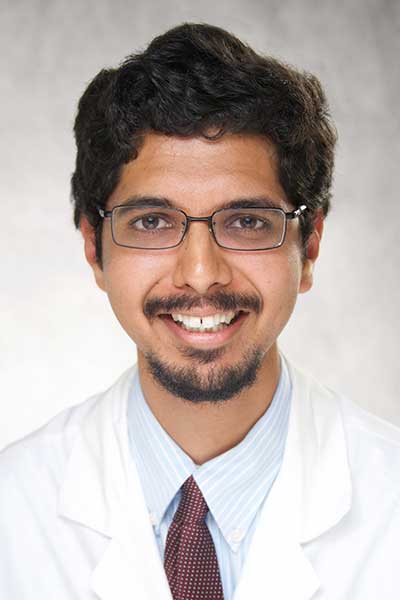The Clinicopathologic Conference is a time-honored tradition at ACR Convergence. During this highly interactive session, faculty will present a challenging case that may be seen in the rheumatology clinic and explore the evaluation, differential diagnosis, and treatment for the disease in question.

This year’s session, My Oh Myositis! An AI-Powered Clinicopathologic Conference, will be hosted on Monday, Nov. 13, from 1–2 p.m. PT in Hall A–B of the San Diego Convention Center. This session will be livestreamed and available on demand within 24 hours of the live presentation for registered ACR Convergence 2023 participants.
Panelists will analyze a diagnostically challenging case of myositis. Throughout the presentations, a moderator will share progressive revelations about the patient’s clinical and pathological features, such as the history of physical examinations, labs, histopathology, and radiology. The experts on stage also will share their diagnostic reasoning as the group progresses through the case study, providing nuggets of wisdom for the audience to consider when they encounter a challenging, nuanced diagnosis like this.
“This year, we’re adding two things that are pretty novel,” explained session moderator Bharat Kumar, MD, MME, FACP, FAAAAI, RhMSUS, Clinical Assistant Professor of Medicine, University of Iowa. “First, we will focus on the diagnostic reasoning process and investigate the psychology behind making a diagnosis. The second thing is integrating artificial intelligence (AI) and prompting ChatGPT to see whether it has any insights that can help further this case along and see how it diverges or converges with the opinions of our panelists.”
Session panelists — Cassandra Calabrese, DO, Cleveland Clinic Foundation, Svjetlana Dolovcak, MD, University of Iowa Hospitals and Clinics/VA Iowa City, and Ayesha Iftekhar, MD, University of Iowa Hospitals and Clinics — have diverse backgrounds in rheumatology, immunology, and infectious diseases. This year’s conference will explore how differences in training and clinical specialties affect a clinician’s diagnostic decision-making process and how collaboration across fields can benefit everyone.
“At the heart of rheumatology is the quest for a refined diagnosis,” said Dr. Kumar, who is also Physician Editor of The Rheumatologist. “For a long time, the mental processes behind arriving at a diagnosis was this gray box that nobody really understood. Recently, insights from cognitive scientists have illustrated some of the paradigms and methods people use to come up with their diagnoses.”
Part of recognizing the mechanisms behind one’s diagnostic decision-making is to ensure providers minimize bias affecting their conclusions while examining a patient. A tool to check these biases throughout diagnostic analysis could come in the form of AI. However, clinicians and researchers must possess a comprehensive understanding of the current capabilities of AI technology before they can use it.
“Since AI is on everybody’s minds right now, we want to demonstrate the strengths and weaknesses of these large language models interpreting clinical data and to inspire some thought among our audience about how they can incorporate it while also understanding the associated limitations at this point,” Dr. Kumar said.

Registered ACR Convergence 2024 Participants:
Watch the Replay
Select ACR Convergence 2024 scientific sessions are available to registered participants for on-demand viewing through October 10, 2025. Log in to the meeting website to continue your ACR Convergence experience.
